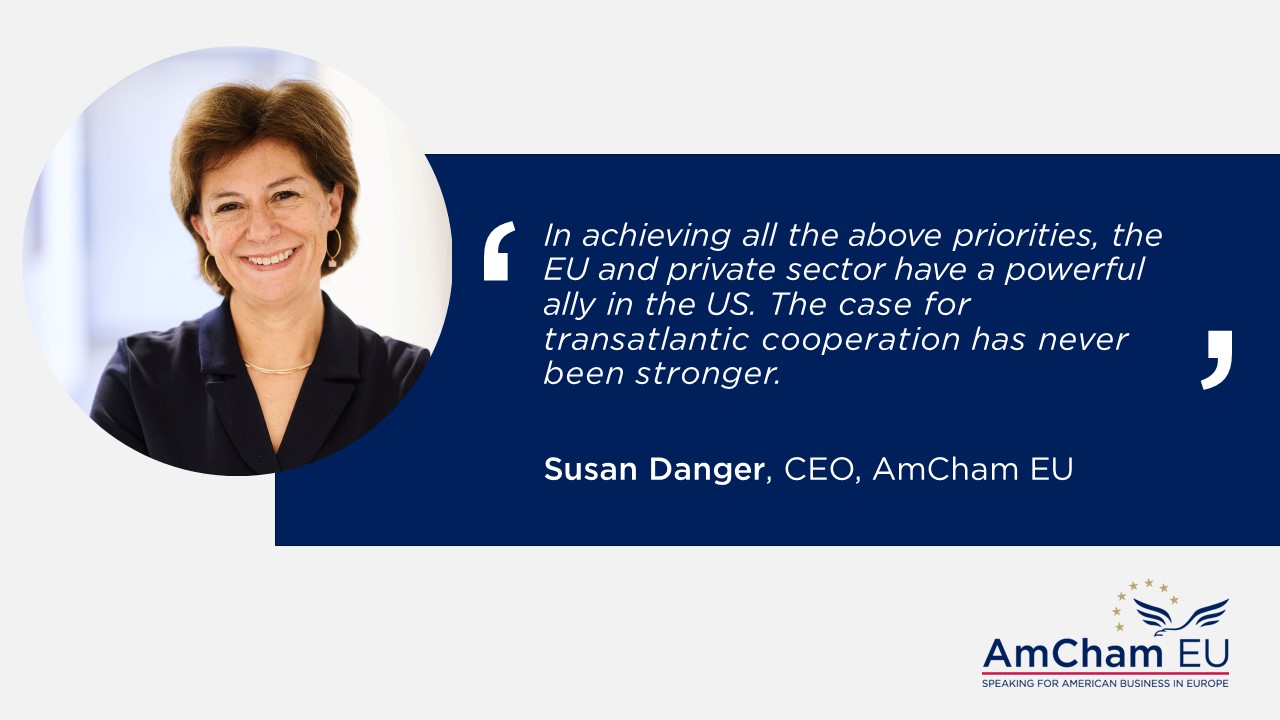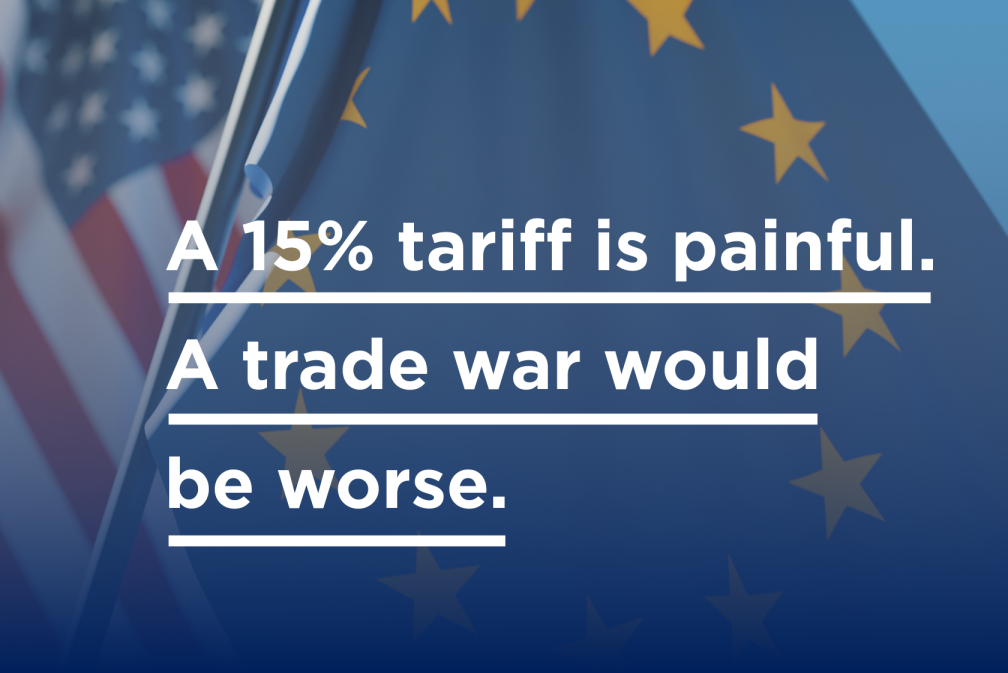Build a more united, competitive Europe
Accelerate the twin green and digital transformations
Nowhere is this cooperation more essential than when it comes to creating a more sustainable and digitalised economy.
The EU is the global leader in its ambitions for a greener future, including the 55% greenhouse gas emissions reduction targets for 2030. Likewise, reducing dependence on Russian natural gas has never been more urgent than in light of the war in Ukraine. AmCham EU members are fully committed to realising the EU's near and long-term goals and are hard at work innovating today to achieve a more sustainable tomorrow. Affordability and reliability of energy supply is vital for their initiatives to succeed.
To support industry in these efforts, the EU must coordinate to provide concrete incentives that produce more local and low-carbon energy. Any policies in this area must respect the Better Regulation principles, avoid fragmentation, ensure regulatory certainty and be guided by international cooperation and innovation.
When applied to the digital sphere, these same priorities can help Europe reap the benefits of a digitalised economy and society. With appropriate support from the public sector, AmCham EU members can create innovative technologies that improve connectivity in rural areas, support environmental sustainability and people’s health, safety, mobility and overall quality of life. The private sector has the potential to stimulate economic growth and jobs by increasing industrial productivity and efficiency, creating new business opportunities and expanding consumer choice.

Strengthen the transatlantic relationship
In achieving all the above priorities, the EU and private sector have a powerful ally in the US. The case for transatlantic cooperation has never been stronger. Economically, the EU and the US are bound together by the transatlantic economy, which generates more than €5.6 trillion in total commercial sales annually and employs 16 million workers on both sides of the Atlantic. Combined, it is the largest and wealthiest market in the world, accounting for half of total global personal consumption and close to one-third of world gross domestic product in terms of purchasing power.
Beyond economics, the EU and the US share the goals of strengthening the resilience of global supply chains, decarbonising the economy and transforming the digital sphere, among other priorities. Neither side should race against the other in these areas but instead ensure alignment and coordination of their strategic investments. Specifically, the US-EU Task Force on the recent US Inflation Reduction Act should facilitate dialogue and better understanding on both sides of the Atlantic, as well as jointly develop solutions to address the difficult external environment.
Both the EU and the US have already laid the groundwork for this cooperation. During the third ministerial meeting of the Technology Council (TTC) last month, delegates outlined an ambitious list of deliverables in a range of critical areas, including artificial intelligence, standards, quantum, digital infrastructure and connectivity in third countries, semiconductor supply chain resilience, vaccines, skills and sustainable trade. In 2023, both sides must build upon the TTC’s achievements to strengthen the transatlantic economy and tackle global challenges. As a trusted policy advisor, AmCham EU will continue to encourage regular dialogue with stakeholders between the ministerial meetings to ensure the TTC’s effectiveness.
The relationship between the EU and the US is built on much more than economics and politics. As the one-year anniversary of Russia’s invasion of Ukraine approaches, the world needs transatlantic leadership more than ever. The war threatens the fundamental values upon which our societies are based and brings a renewed sense of urgency on shared existing priorities, including the energy transition, the need to strengthen supply chains and reducing strategic dependencies. It also demonstrates that the EU needs to work closer than ever with like-minded partners, including the US, to defend and project the shared values of human dignity, the rule of law and democracy.
As we look ahead to the new year, instead of – or along with – our usual resolutions to visit the gym more regularly and eat more healthfully, each of us, citizens, industries and governments, must resolve to work across geographic boundaries to strengthen Europe, its capacities and its relationship with allies like the US. This season, join me in raising a glass and cheering to a healthier planet, a more sustainable, digital and prosperous economy, and last but not least, a safer and more peaceful world.



